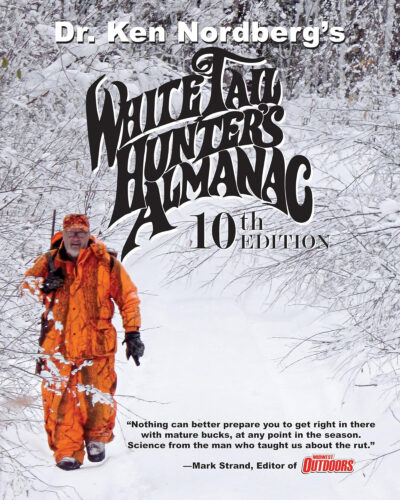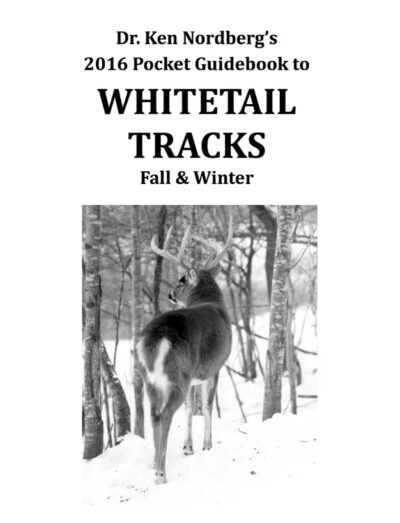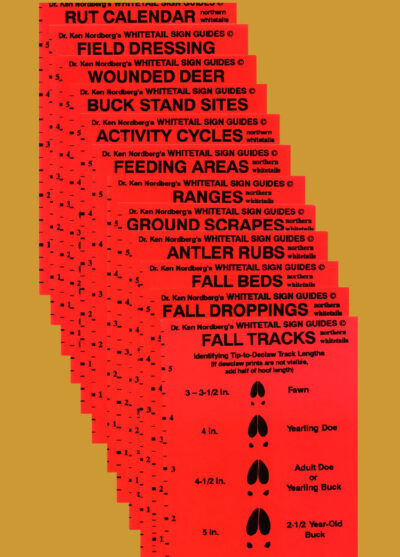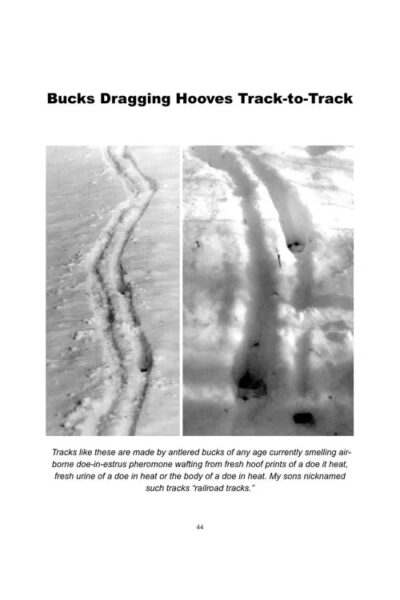Whitetail Hunter’s Almanac: The One Book To Read Before Deer Hunting Season
Zac K. 10.25.24

I’ve never failed to fill my deer tag, but I don’t consider myself an expert whitetail hunter for two reasons. First, I grew up in a Canadian province with no deer population, and my dad didn’t hunt, so I didn’t grow up in a learning-to-hunt environment, and that’s the best way to learn. Second, although I got busy deer hunting as soon as I had the opportunity in my mid-2os, my time has always been limited by work and family life, since I’m a normal guy like the rest of y’all.
For those two reasons, I’ve always been very keen to learn hunting tactics from those who did grow up deer hunting and from those who have spent lifetimes perfecting their tactics and skills. That means I’ve listened to lots of podcasts, read lots of magazine articles, and a big stack of books. And if you’re in the same boat as I was, trying to learn how to deer-hunt as an adult, then there is one book you should get your hands on. That book is Dr. Ken Nordberg’s Whitetail Hunter’s Almanac.

Some background
Dr. Nordberg grew up in the rural midwest hunting deer the traditional way, starting by doing group deer drives while he toted a lever-action .30-30. He grew up, moved away to do a stint in the Navy as a dentist (hence the “Doctor” title) and also got himself a degree in animal psychology. After he moved back to the U.S., he opened a private dentistry practice and started hunting deer a lot more seriously in the Minnesota northwoods. He also started studying deer. Throughout his free time away from his day job, Nordberg spent hours photographing deer and observing every aspect of their life. He also evaluated new hunting products on the market, and was one of the guys at the forefront of the treestand revolution, and when he started writing for hunting magazines, he was an early proponent of scent lures.
The latest version of the Whitetail Hunter’s Almanac (currently in its 10th edition) is filled with knowledge gleaned from Nordberg’s hunting and studies in deer behavior from the past 50 years.

What I like about this book
Some hunting books don’t really give you much useful information—they just romanticize a certain style of deer hunting, or they brag up the writer’s prowess, or only delve into a specific tactic that revolves around specific gear in a specific area. There’s nothing wrong with these books when taken for what they are, but I appreciate Nordberg’s Whitetail Hunting Almanac because it has a lot of very helpful information.
First, it contains a lot of useful fieldcraft (for lack of a better word). Second, it’s not really aimed at selling you anything; aside from general hunting equipment, the only gear Nordberg recommends is a stool that you can make yourself, and he publishes the plans for free. Third, it contains information on multiple hunting tactics (although Nordberg certainly focuses in on a couple he specifically likes, and explains his problems with other ideas). Fourth, many of the skills and tactics recommended will work anywhere, not just one specific region. And fifth, it has a lot of useful information about deer themselves—about how they eat, how the rut works, about their year-round living realities, about how they react to humans.

Nordberg’s hunting strategies are based not just on his own hunting successes (and he has certainly shot a lot of big bucks), but also on the deer behaviors he observed to formulate those strategies. Now, granted, there are certainly regional differences between deer based on food sources and buck density and dozens of other factors. But if you practice the skills that Nordberg advocates (stealth, marksmanship, observation, pre-season scouting), you should find success wherever you hunt.
What you might not like about this book
Nordberg’s specialization in deep woods hunting in the north means there are many other tactics and practicalities to consider if you’re in a much-different area. Because many of Nordberg’s early tactics were based on hunting in snow, if you hunt in an area with no snow during deer season, you’ll find his tracking information less useful. If you’re hunting in a zone that prohibits rifles for deer hunting, you’ll have to reconsider some of his ideas, or at least modify them, on that basis alone.

I also think the Almanac could have perhaps spent more time examining the practicalities of hunting methods that have arisen since the author’s 1970s-1990s heyday.
And finally—and this may be the biggest annoyance for most readers—Nordberg is certainly not afraid to tell you how great he and his family are at deer hunting…
A good starting point
However, I can forgive the book those niggles, because it contains so much more information than any other deer hunting book I’ve read. It’s already 759 pages long, and to add any more information, you’d need to start a multi-volume series.
And no matter where you live or how you hunt, or even what you hunt, I think you can learn from this book by applying Nordberg’s mindset to your hunting. Even if all of his tactics and methods and even equipment aren’t necessarily suited to your area, his methodical approach informs you of the approach you need to take, refined by the realities of your area. And some of his basic ideas (stealth, marksmanship) are necessary in every big game hunting scenario.
Where to find the book
The 10th Edition of the Almanac is currently for sale in e-book form for $24.95 on Amazon. The 10th edition was also available in printed form, but those are sold out, and I would not expect another printing anytime soon (I may be wrong—keep an eye on www.drnordbergondeerhunting.com for updates).
Also note that Nordberg does have printed versions of some of his older almanacs for sale, some of which contain substantially different information. He also has printed or e-book versions of shorter books on whitetail hunting as well as black bear hunting, and even DVDs. Visit dr-ken-nordberg.myshopify.com/collections/all to see what’s available.
https://www.youtube.com/@kennordberg9303
Or if you’re a cheapskate, like me? Watch his YouTube channel for free, and you can pick up a lot of information there.

